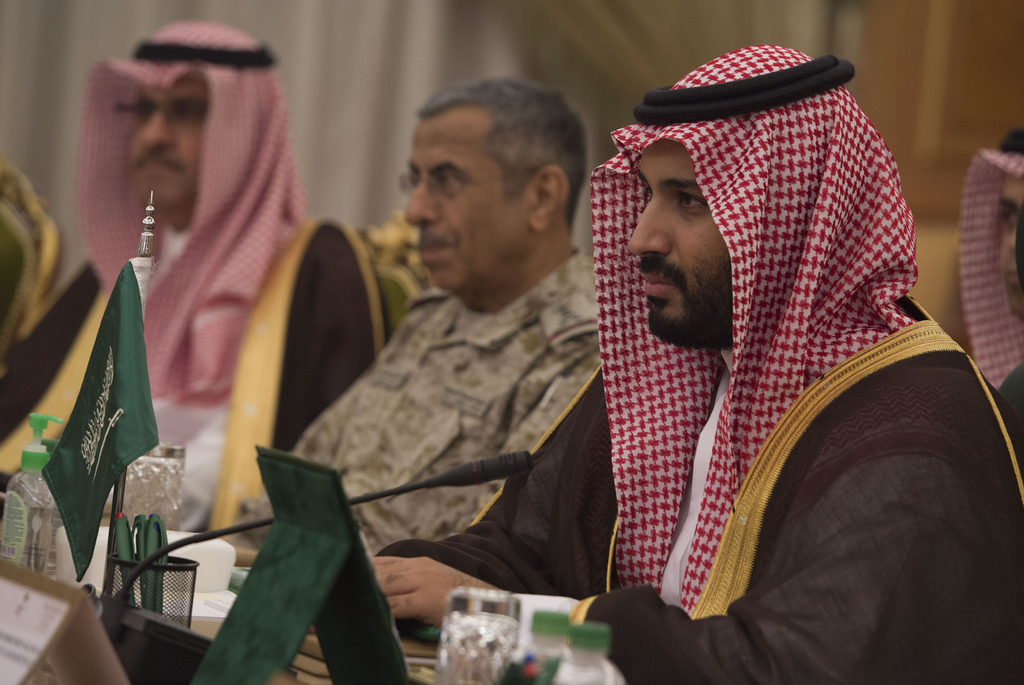"The government continues to conduct large-scale economic and social reforms to get rid of the dependence of the economy on oil revenues, to create a more dynamic private sector, which in turn will bring more jobs to the growing working-age population. We expect growth in this year and in the medium term, when the reforms will end, "- said the head of the IMF Mission in the Kingdom Tim Callen in his statement.
Saudi Arabia's GDP should grow to 1.7% after falling by 0.7% in 2017. In 2019, the economy will rise to 1.9%, as the volume of oil production will increase, the creditor said in his report.
The Saudi Vision 2030 aims to reduce Saudi Arabia's dependence on oil through creation of new revenue streams, such as introduction of VAT, which entered into force this year, development of the private sector, expansion of the manufacturing industry and opening of capital markets for foreign investors.
Significant progress has been made in improving the business climate, including changes in the legal system, business licensing and regulation. The Public Procurement Law, which is currently being updated, plays a key role in strengthening anti-corruption policies, and the implementation of the privatization strategy and public-private partnership should be accelerated, Callen added.
He added that the kingdom should continue to carry out its "bold" reforms within the framework of Vision 2030, despite the rise in oil prices, which in the short term will make economic diversification less critical.
"The priorities for the government are to support implementation of reforms, achieving the established financial goals and resisting the temptation to redistribute public spending in view of higher oil prices," Callen said.
Oil prices have recovered to almost $ 80 per barrel, after remaining low over the past 3 years and falling to below $ 30 per barrel.
In general, Saudi Arabia should focus on a balanced budget by 2023, limiting the growth of public spending to achieve budgetary goals.
The job creation policy should focus on "clear signals about limited prospects for employment in labor markets, easing mobility restrictions for expatriate workers, further strengthening education and training and supporting the increase in women's participation," the statement said.
The Kingdom should balance between financial development and financial stability, with increased financing for SMEs, more developed debt markets and improved financial access, especially for women.
"The exchange rate linked to the dollar continues to operate for the benefit of Saudi Arabia, given the structure of the economy," the statement said.
source: thenational.ae
Saudi Arabia's GDP should grow to 1.7% after falling by 0.7% in 2017. In 2019, the economy will rise to 1.9%, as the volume of oil production will increase, the creditor said in his report.
The Saudi Vision 2030 aims to reduce Saudi Arabia's dependence on oil through creation of new revenue streams, such as introduction of VAT, which entered into force this year, development of the private sector, expansion of the manufacturing industry and opening of capital markets for foreign investors.
Significant progress has been made in improving the business climate, including changes in the legal system, business licensing and regulation. The Public Procurement Law, which is currently being updated, plays a key role in strengthening anti-corruption policies, and the implementation of the privatization strategy and public-private partnership should be accelerated, Callen added.
He added that the kingdom should continue to carry out its "bold" reforms within the framework of Vision 2030, despite the rise in oil prices, which in the short term will make economic diversification less critical.
"The priorities for the government are to support implementation of reforms, achieving the established financial goals and resisting the temptation to redistribute public spending in view of higher oil prices," Callen said.
Oil prices have recovered to almost $ 80 per barrel, after remaining low over the past 3 years and falling to below $ 30 per barrel.
In general, Saudi Arabia should focus on a balanced budget by 2023, limiting the growth of public spending to achieve budgetary goals.
The job creation policy should focus on "clear signals about limited prospects for employment in labor markets, easing mobility restrictions for expatriate workers, further strengthening education and training and supporting the increase in women's participation," the statement said.
The Kingdom should balance between financial development and financial stability, with increased financing for SMEs, more developed debt markets and improved financial access, especially for women.
"The exchange rate linked to the dollar continues to operate for the benefit of Saudi Arabia, given the structure of the economy," the statement said.
source: thenational.ae





